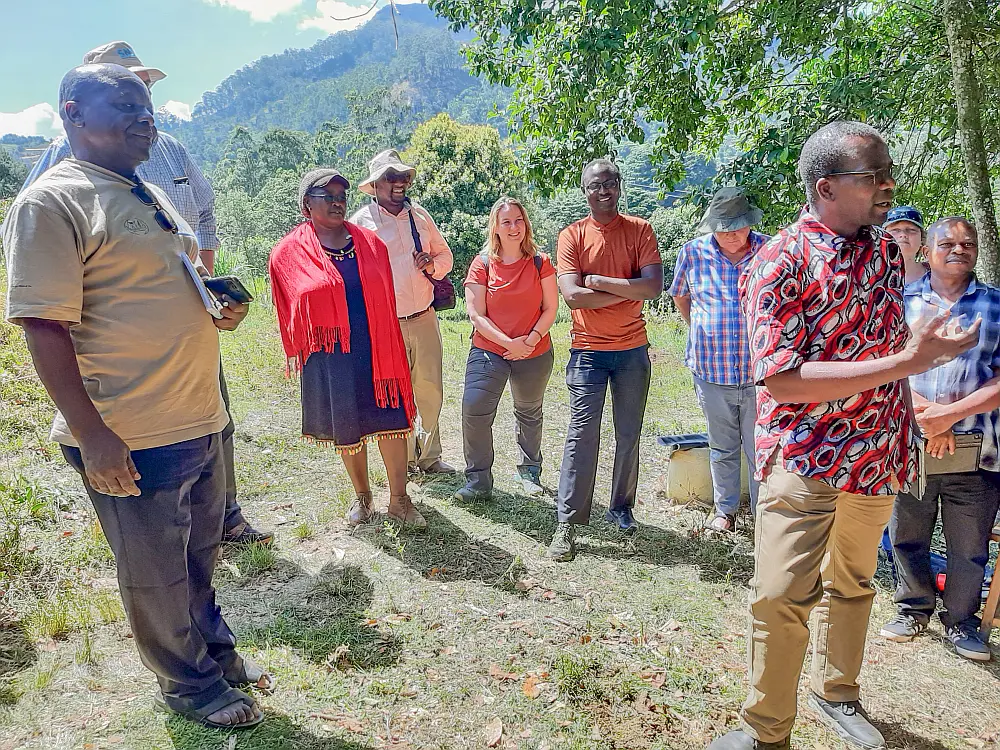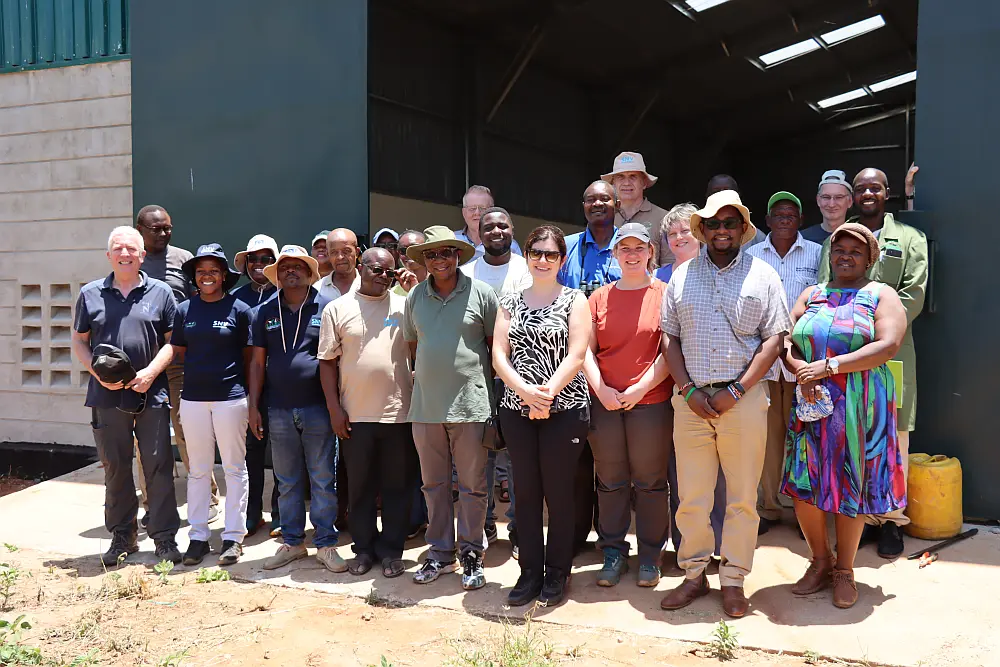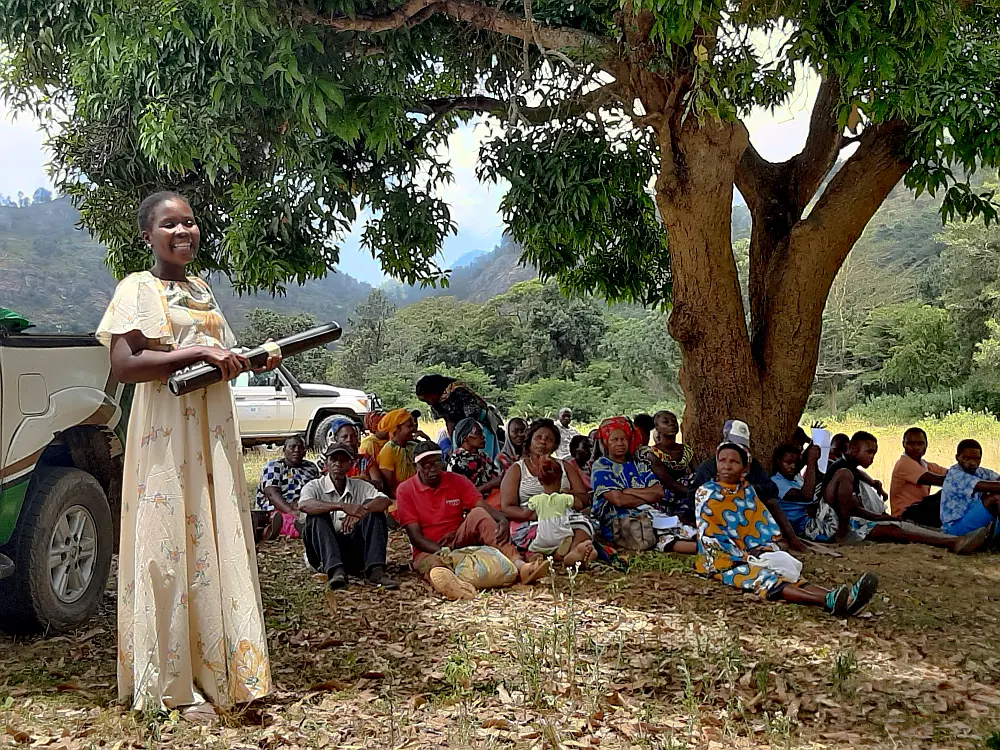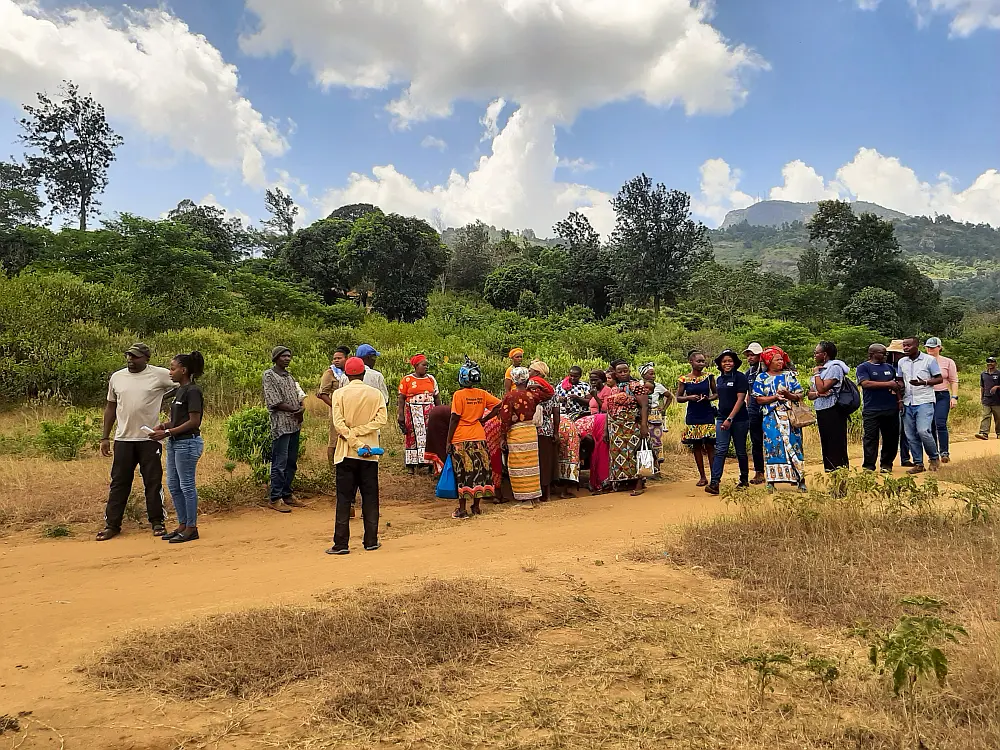Insightful monitoring visit by LSC-IS project donors and partners in Kenya
Date: March 20, 2024 Author: Andre Kooiman, Thaïsa van der Woude, Silvana Summa(ISRIC)
Donors and partners of the LSC-IS project have recently visited project sites in Taita Taveta County, Kenya, to monitor the progress made through their support.

Participants during the visis
Climate change significantly impacts the quality and resilience of land, leading to food and nutrition insecurity for Kenya’s growing population. Enhancing access to land, soil, and crop information can effectively support improved soil fertility management and soil and water conservation, mitigating the impacts of climate change while ensuring sustainable agricultural practices.
The Land, Soil, and Crop Information Services (LSC-IS) project is developing information hubs in national agricultural research organisations in Kenya, Ethiopia, and Rwanda. The main objective of this project is to enhance the effectiveness of national Agricultural Knowledge and Innovation Systems (AKIS) while promoting rural transformation and climate-smart agriculture in East Africa. LSC-IS is funded by the European Union through its DeSIRA program and the Netherlands’ Ministry of Foreign Affairs, with a contribution from ISRIC-World Soil Information.
The data hubs, currently being populated with consolidated data from various existing sources and portals, will facilitate access to information for agricultural decision-makers, extension staff and farmers at national, regional and local level.
On 19-21 February, together with SNV in Kenya, we organised a joint monitoring visit to Taita Taveta County in Kenya for representatives of the European Union Delegation in Nairobi, the Embassy of the Netherlands in Kenya and the Netherlands Ministry of Foreign Affairs. We visited LSC-IS project sites, met with stakeholders, and witnessed firsthand the project’s progress and impact. The LSC-IS part of the visit was hosted and facilitated by Dr. Michael Okoti, Senior Researcher from the Kenya Agricultural & Livestock Research Organisation (KALRO). Dr. Eliud Kiplimo Kireger, KALRO’s Director General, also attended the visits.

Participants
A courtesy visit introduced the projects to Governor Andrew Mwadime Wakujaa, who confirmed the County’s commitment to working with development partners to improve the livelihoods and build resilience of communities in Taita-Taveta County.
During the three-day visit, we had the opportunity to visit three farmer groups:
- Msichoke Youth Group, Wesu village, Wundanyi Sub-county: The group, with a membership of 13 (12 males and 1 female), is actively involved in farming of highland crops and some dairy production.
- Mlughi Farmers Group, Mlegwa village, Mwatate Sub-county: The group, with a membership of 22 (18 females and 4 males), is actively involved in dryland crops.
- Ilole Farmers Self-Help Group, Bura village, Mwatate Sub-county: The group has a membership of 25 (18 females and 7 males) and focuses on dryland crops,
The farmers described the challenges they face in producing crops in changing rainfall patterns and their need for information on how to better manage soil fertility and erosion under these conditions. They also presented the results of the LSC-IS project’s participatory planning exercises conducted in January with KALRO and County Department of Agriculture (CDA) staff. The latter explained the link with Taita Taveta County’s agricultural development and extension activities in the villages. KALRO presented the landscape approach as its overall framework and explained the LSC hub as a resource for appropriate advisories and their priority locations.

Visit
The visit showed that the LSC hub is closely integrated into KALRO. In Taita Taveta County, in LSC-IS, KALRO is working closely with the County Department of Agriculture. Thereby, the LSC hub supports the planning and implementation of the County’s activities on the ground. Also, by including actionable data and engaging ‘infomediaries’, the LSC hub supports activities on soil fertility management and soil and water conservation by communities and farmers themselves.
The visit clarified a lot about the rationale behind the LSC-IS project. It demonstrated its added value in supporting development activities at the County level and in making available data to communities and farmers, which is expected to have an impact.

Visit
Furthermore, the joint visit offered the opportunity for exchange between development organisations and institutions involved in various projects in the county and for seeking opportunities for synergies, especially between the DeSIRA-funded projects
Over the coming months, the LSC-IS project will continue working with KALRO and CDA to engage with farmer groups to further develop the hub and its products and train users. The DeSIRA projects agreed to share their lessons learned.
Learn more about the LSC-IS project and the Kenya LSC hub.
The LSC-IS project is implemented by Wageningen University and Research (WUR), ISRIC-World Soil Information, International Livestock Research Institute (ILRI), Kenya Agriculture & Livestock Research Organisation (KALRO), Ethiopia Institute of Agricultural Research (EIAR), Rwanda Agriculture Board (RAB) with World Agroforestry Centre (ICRAF), International Union for Conservation of Nature (IUCN) and German Aerospace Center (DLR).
